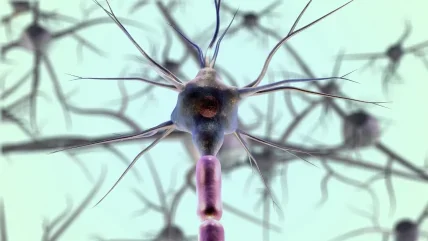
Vistagen, a clinical-stage biopharmaceutical company pioneering neuroscience to deliver groundbreaking therapies for individuals affected by psychiatric and neurological disorders, today announced that the U.S. Patent and Trademark Office (USPTO) granted a patent to the Company for its oral non-opioid product candidate, AV-101, for the treatment of neuropathic pain. The patent will not expire until at least 2034 and is part of Vistagen’s global patent portfolio on manufacturing methods and therapeutic uses for AV-101 to treat various disorders involving the NMDA receptor.
“This new patent advances our AV-101 portfolio and significantly strengthens our position for potential collaborative development and commercialization of this clinical-stage product candidate,” stated Shawn Singh, President and Chief Executive Officer of Vistagen. “We look forward to identifying potential partnering opportunities for AV-101 as a non-opioid alternative for pain, as well as dyskinesias and other neurological disorders.”
Preclinical data previously published in the peer-reviewed journal, The Journal of Pain, demonstrate robust antinociceptive effects of AV-101, similar to gabapentin, but with a better side effect profile in several preclinical models of hyperalgesia and allodynia. Compared to the control drugs tested (gabapentin and MK-801), AV-101 has similar robust anti-nociceptive effects, but contrary to the control drugs tested, non-opioid AV-101 had no discernable negative side effects. The preclinical study was conducted by Tony L. Yaksh, Ph.D., Professor of Anesthesiology and Pharmacology at the University of California, San Diego.
Further preclinical research conducted by Dr. Yaksh comparing AV-101 to pregabalin in the Chung ligation model of pain, an accepted gold standard preclinical model for chronic neuropathic pain caused by nerve damage, demonstrated that AV-101 had a significant dose response with similar efficacy in this rat model of a mononeuropathy as compared to pregabalin, which was used as an active comparator. The statistically significant positive preclinical results suggest AV-101’s potential to treat multiple hyperpathic pain states.
Additionally, clinical data from both the single and multi-dose Phase 1 studies previously published in the peer-reviewed publication, Scandinavian Journal of Pain, indicated that oral AV-101 was well-tolerated, with no meaningful difference in adverse events at any dose between AV-101 and placebo. While the AV-101 study was not designed to achieve statistical significance in reducing pain in healthy volunteers, there were consistent reductions for allodynia pain and mechanical and heat hyperalgesia. The study was conducted by Mark S. Wallace, M.D., Professor of Anesthesiology and Pain Management Specialist at the University of California, San Diego.
Vistagen plans to seek potential strategic collaborations to further advance the potential clinical development and commercialization of AV-101 for disorders involving the NMDA receptor, particularly pain and dyskinesias.






